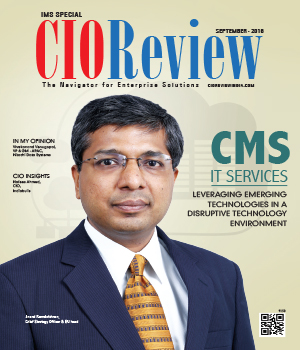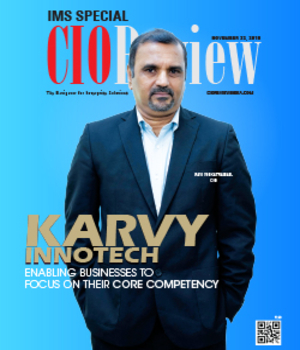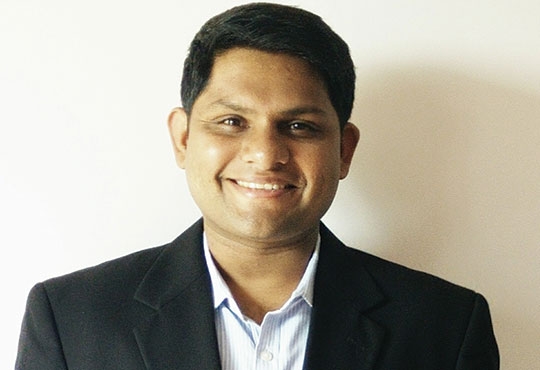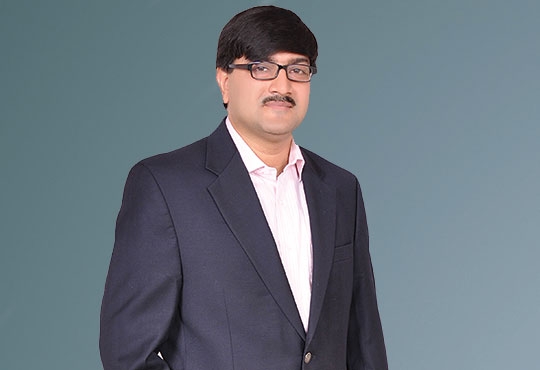
Enterprise Storage: Turning Data into Intelligence
Vivekanand Venugopal, VP & GM - APAC, Hitachi Data Systems
 Question 1: Storage solution providers are essential partners for some IT organizations and most companies are likely to employ the services of a data storage provider at one stage or another. State your opinion about this market opportunity.
Question 1: Storage solution providers are essential partners for some IT organizations and most companies are likely to employ the services of a data storage provider at one stage or another. State your opinion about this market opportunity.
Disruptive technologies are experiencing strong sustained growth in the market today. Storage is providing prominence to these technologies and the way it is evolving it is consequently driving increased demand for storage products. With big data, cloud and machine learning becoming dominant, storage technologies often become automated and more complex.
Hitachi Data Systems (HDS) has been best known for storage and IT infrastructure expertise, but our focus has been shifting to diversifying the product and solution portfolio. From being ‘just a storage company’, we are expanding our proficiency in advanced data analytics, Internet of Things and connected intelligence.
Hitachi Data Systems has always helped organizations to design, deploy and leverage economically superior storage architecture across datacentres, helping customers turn data into intelligence. We are the only IT vendor to address customer workload requirements from entry to mainframe with single storage software platform.
Hitachi Data Systems is helping the enterprises locally and globally to align their IT with business requirements, using IT economics to drive greater value for the business. We are positioned to deliver business transformational solutions which are rooted to its core competencies, with a balance of world-class infrastructure and flexible and secure content solutions. Partnering with best companies in technology is our way to create innovative storage virtualization, management and data protection solution, which are customized to meet the demanding business needs.
We also see a lot of opportunity in the government’s Digital India and Smart Cities campaign, not just as a technology provider but more as a Social Innovation specialist. We see the next five years to be promising for us from a business standpoint.
Question 2: Every all-flash vendor advertises high IOPS numbers. But IOPS is not the only part of performance that one needs to consider. How is Hitachi doing things differently in this space?
In the rush to deploy flash, it is easy to assume that the many flash solutions on the market are basically the same. Since flash systems provide greater performance and efficiency benefits than the disk systems they are replacing – users tend to assume that any flash storage system is a “good-enough” flash storage system.
Many IT departments are now realizing that there are fundamental differences in flash storage solutions that can impact the overall success of a deployment. Hitachi Data Systems can help sort through the flash trade-offs and advantages through better performance consistency and reliability.
We have worked with a number of customers who have learned the hard way that not all flash is the same. We need to ask the customer to stop looking at cost per terabyte and start looking at cost per I/O. Hitachi Flash Storage A series dramatically reduces cost per I/O, lowering the power significantly. Customers can realize an average of 5:1 more effective capacity and optimize data reduction rates with performance through optional deduplication tuning.
Question 3: Key developments include the increasing prevalence of flash as it approaches and then overtakes hard disk in terms of cost-effectiveness, and the maturation of technologies like hyper-converged, software-defined and hyper-scale storage. Where is Hitachi Data Systems headed with such expected developments?
In today’s fast-paced world, organizations that depend on technology to drive business innovation are intensifying the pressure on IT to deliver services faster and more cost-effectively than ever before. IT spends almost a quarter of their time and resources evaluating and installing increasingly disparate hardware components. To solve this problem, organizations should evaluate converged infrastructure solutions. Hitachi UCP converged infrastructure solutions offer integrated computing options, simplified management and improved utilization that cut TCO by 30 percent.
IDC predicts that converged systems - with a growth rate of 54 percent per year - will account for over one-third of enterprise cloud deployments in 2016. The hyper-converged market last year grew at 116 percent and the growth rate in 2016 is expected to be 94 percent and the market should pass 1.5 billion USD worldwide.
Hitachi Data Systems believes that to truly unlock the value of a Software-Defined Infrastructure, technology must simplify operations through automation, drive insight through better access to information and create agility through abstraction by turning fixed assets into flexible resources. Software Defined Infrastructures (SDI) free data from traditional hardware and location constraints, making it more accessible for existing and new analytics-driven workloads. Each of HDS’ platforms unlock the value of SDI by helping customers achieve greater levels of information access through virtualized, hyper-converged and scale-out architectures that are built to accelerate the journey to IT-as-a-service through an application-led, software-defined approach to IT. Also, it can expedite business insight and allow business to transform the information and data into insights that bring value to companies to develop competitive advantage.
CIO Viewpoint
Why Foolproof Facial Recognition Is Key Against...
By Joseph Sudheer Thumma, Global CEO & MD, Magellanic Cloud
National Technology Day 2025: Powering Progress...
By CIOTech Outlook Team
Aligning IT Roadmap with Business Objectives: A...
By Subhash singh Punjabi, CISO & Head Enterprise Architecture, Deepak Fertilisers & Petrochemicals Corporation Ltd
CXO Insights
How Is Increasing Adoption of NoSQL Databases...
By Bharath Hemachandran, Digital and Next Gen QA Evangelist, Wipro
Language-as-a-Service - Key to Global Expansion
By Arvind Pani , Co-Founder & CEO, Reverie Language Technologies
Innovation and Technology - Pillars for Growth...








